The content of the article
- 1 Fennel and dill: what is the difference
- 2 Composition and calorie content
- 3 What are the benefits of fennel seeds
- 4 The benefits of fennel seeds for weight loss
- 5 The healing properties of fennel seeds
- 6 The use of fennel in cooking
- 7 Harm and contraindications
- 8 Interesting facts about fennel
- 9 Video: useful properties of fennel
Fennel is a fairly well-known plant native to the shores of the Mediterranean Sea. It is also found in the wild in India.
The plant belongs to the family of umbellate (celery) and looks very similar to dill - the same dissected cirrus leaves, only thicker, and the same inflorescences-umbrellas. For such a resemblance, he was even called the "dill pharmacy." But actually these two spices are completely different plants. We will talk about their differences below.
Fennel has a huge amount of useful properties. It is used in cooking, cosmetology, medicine and veterinary medicine. People use all parts of the plant for business: leaves, stems, roots and seeds. It is used both fresh and dried.
Fennel and dill: what is the difference
Despite the resemblance, fennel and dill have many differences.
- Fennel is a perennial thermophilic plant. In the midland of Russia and in Siberia, he does not always have warm summer days, so he is grown through seedlings. Its stem is bushy, highly branched, up to 2 m in height. Leaf varieties in appearance resemble dill, they are grown to collect greens and seeds. Vegetable varieties form a fleshy onion below. The root is rod, juicy, with a large number of thick lateral branches. Leaflets have a sweet taste and pleasant anise flavor. When rubbing them in the fingers, you can also catch the smell of anise.
- Dill is often an annual plant, although perennial species are found in the southern latitudes. This is a cold-resistant plant, self-seeding in our climate. Dill has a high single stalk, slightly branching in the apical part. Petiolate cirrus leaves extend from the stem along the entire length. In height, the plant reaches (depending on the variety) from 30 to 170 cm. The dill root is firm, core, slightly branched. Dill has a spicy taste and smell, with an admixture of aromas of parsley, lemon and anise.
By the appearance of the seeds, it is also easy to determine what is in front of you: dill or fennel. Dill seeds have a flat-oval shape, reach 3-5 mm in length and 1-2 mm in thickness. Fennel seeds are narrower, oblong-curved, resembling anise seeds in shape, 4–6 mm in length and 2–3 mm in width.
Both plants are widely used in cooking, only dill, unlike its counterpart, is not used for the preparation of desserts.
Composition and calorie content
Fennel seeds are a very healthy and sought-after product.
Despite the fact that the greenery of this plant has a low calorie content (only 31 kcal), its seeds are a very nutritious product - their energy value is 345 kcal per 100 g.
100 g of fennel seeds contain the following components:
- fats - 14.87 g;
- carbohydrates - 52.29 g;
- proteins - 15.8 g;
- ash - 8.22;
- water - 8.81 g.
Also, the seeds contain a number of vitamins: A, B1, B2, B3, B5, B6, B9, C, E. The mineral composition is represented by the following set of trace elements:
- manganese;
- iron;
- calcium;
- copper;
- magnesium;
- phosphorus;
- potassium;
- zinc;
- sodium
- selenium.
The composition of the seeds also includes essential oils, dietary fiber, essential fatty acids, glycosides and flavonoids. Essential oils contain up to 60% anethole - an aromatic essential substance that has anti-inflammatory, antiviral and antimicrobial properties.
What are the benefits of fennel seeds
Fennel seeds are used in a wide variety of fields. This aromatic spice is used in the culinary of many countries and peoples. Essential oil is widely used in cosmetology and the production of perfumery products, as well as pharmacology. It is part of many drugs to stimulate digestion, treat respiratory diseases, and soothe and enhance lactation.
Fennel is an aphrodisiac for both men and women. Essential oil has a positive effect on the nervous system, gives a feeling of calm, which positively affects the general psycho-emotional state and allows you to experience increased sexual desire.
For women
Anethole, which is part of the seeds, is classified as phytoestrogens. It is believed that when it enters the body, it begins to affect the female reproductive system, which increases the growth of mammary glands and their secretion. However, recent studies have questioned the effect of fennel seeds on lactation and breast growth.
Nevertheless, this amazing product still has a certain effect on the female body. Phytohormones help establish the menstrual cycle and reduce pain on critical days. Regular use of drugs and fresh seeds of this plant helps to avoid discomfort during menopause, prevent cancer and infectious lesions of the reproductive organs.
For men
The substances that make up the fennel seeds have a beneficial effect on the prostate gland in the male body, supporting the health of the genitourinary system as a whole due to antibacterial components. Traditional medicine also recommends using small doses of tincture of fennel seeds and fresh celery leaves to enhance potency.
During pregnancy
For women in an interesting position, tea with fennel seeds can help with early toxicosis. The anti-inflammatory effect and phytohormones positively affect the health of both mother and fetus. It is worth remembering that it should be tea in a weak concentration, and not an infusion, so as not to cause poisoning. You need to drink such tea regularly, throughout the day.
ATTENTION! With increased tone and the threat of miscarriage, fennel should be completely excluded from the diet of the expectant mother, so as not to provoke contractions of the smooth muscles of the uterus. If in the normal state this property helps to fight constipation and violations of the monthly cycles, then during pregnancy it can cause irreparable harm and provoke a miscarriage.
For kids
For infants, including infants (but not in the very first months), weak infusions and decoctions of fennel seeds or regular use of seeds by the mother and their transfer to the baby through breast milk are very useful. They contain potassium, which the young body actively spends on the formation and growth of bones. In addition, the seeds have sedative properties that affect the formation of a healthy nervous system in a child. Anti-inflammatory qualities help in the fight against infections and strengthen the immune system.
But the main benefit that fennel provides to babies is to get rid of colic and flatulence in their first year of life. Known to all young mothers, dill water (against bloating) is prepared just from the seeds of the “pharmacy dill” - fennel.
The benefits of fennel seeds for weight loss
The composition of fennel seeds contains plant fibers that are able to absorb water and swell, creating an imitation of a dense meal. Thus, using seeds as part of food, you can achieve a more rapid saturation with less food. Minerals, vitamins, hormones and antiseptics in the composition of the product enrich the body and affect the general normalization of metabolic processes, which, in turn, increases the level of assimilation of food, allowing to reduce its amount.
Since fennel seeds contain substances that are involved in the breakdown of fat and sugar in the body, this property can be best used by those who want to lose weight. In addition, the general normalization of digestion, the elimination of constipation and bloating will also contribute to the harmony of the figure. It is important to mention the diuretic property of the product, which allows you to remove excess water and salt from the body.
For weight loss, you can regularly use teas and fennel infusions, add seeds and greens to different dishes, or just chew seeds and leaves. Greens in itself is not only tasty, but also a low-calorie diet product. Effectively use fennel essential oil for anti-cellulite massage and aromatherapy.
The healing properties of fennel seeds
The healing properties of fennel seeds have been used by folk healers since ancient times. Many folk recipes have survived to this day.
- Anethole, located in the seeds, contributes to the inhibition of bacteria in the oral cavity. Therefore, they are successfully used to treat stomatitis - in the form of infusion or dry powder.
- Eating fennel seeds (fresh or in the form of an infusion) prevents colitis and flatulence in children and adults, improves digestion, and dilates blood vessels. Taking them before meals helps increase appetite. Just remember that the infusion of seeds can be consumed only in small quantities, not more than 1-2 tablespoons per day. Exceeding the dose can cause poisoning.
- The presence of fiber in the seeds allows you to accumulate water in the intestine and increase the amount of absorbed food, thereby preventing the risk of constipation. Sometimes fennel seeds are even used as a mild laxative. In addition, dietary fiber from seeds absorb bile salts and certain toxins, thereby preventing the production of "bad" cholesterol and providing general cleansing of the body.
- Minerals and vitamins are actively involved in metabolic processes, including the breakdown of sugar and fats, having a positive effect on the state of liver and pancreas cells.
- The presence of potassium in the seeds helps to normalize the heart rate and blood pressure, and also determines the diuretic effect. Vitamins A and C help improve vision and strengthen immunity.
- The presence of anethole in essential oil determines a wide range of anti-inflammatory uses. Flavonoids quercetin and kempferol bind and remove free radicals from the body. The use of their powerful antioxidant effect allows you to protect the body from cancer, various infections, prevent neurosis, improve sleep, slow down the aging process, and also successfully cope with the pathologies of the genitourinary system and kidneys, removing small stones and sand with urolithiasis.
- The anti-inflammatory properties of the seeds are used to improve the condition of the skin. With regular use of them in small amounts with food, hormonal balance is normalized, which contributes to the disappearance of such unpleasant symptoms as acne and acne. The skin becomes noticeably cleaner and healthier, its elasticity increases, small wrinkles are straightened. It is important to say that antifungal properties were also found in fennel seeds.
- With flu and colds, seeds are an effective way to treat the throat and fight the viruses that caused the disease. Thanks to antibacterial components, their infusion is effective in diseases of the respiratory tract - bronchial asthma, pneumonia, bronchitis, tuberculosis.
- Fennel oil is used internally, as well as in the form of grindings, applications, added to massage creams and gels. It is used for aromatherapy, as well as in the composition of perfume fragrances.Fennel essential oil can be used to purify indoor air at the rate of 2 drops per five square meters.
- A drink can be prepared by adding a pinch of seeds to a glass of boiling water in any other tea, or brew the seeds separately. The infusion is prepared from a glass of boiling water and a tablespoon of seeds, after which it is allowed to cool. Cooled drink consume 1-2 tablespoons before meals during the day.
- Fennel seeds are used as an antiparasitic, including in veterinary medicine.
The use of fennel in cooking
In the culinary of Mediterranean countries, fennel has long taken a strong place. In our country, he is less known, apparently, because of the thermophilic "character". Nevertheless, recently this product has also become rapidly gaining popularity with us.
You can’t buy fresh fennel at the store today. But in any pharmacy you can find its useful seeds. Many gardeners grow this plant in their areas and therefore always have at their disposal both greens and plant seeds. The green part of the plant, as well as its fruits and roots, is used as food. Fennel roots are eaten after thorough cleaning and heat treatment, other parts of the plant are consumed in any form.
Fennel is used in almost all types of culinary products: in salads, soups, main dishes, desserts and pastries, and even as an independent dish. This product is able to enrich any dish with an unforgettable refined taste and aroma.
Fennel greens and seeds are added to salads and soups, to which it gives a delicate pleasant taste and aroma. You can use them in the manufacture of desserts, sweet pastries, puddings, pies and even jam. Instead of greens or seeds, you can use aromatic fennel oil, which is obtained by insisting the crushed seeds on any vegetable oil.
Fennel bulb can be used in various dishes fresh or stewed. It can be served as part of a sophisticated side dish or made into a leading component.
In Europe, it is customary to add fennel inflorescences when pickling vegetables, just like we use dill umbrellas. Also, young inflorescences are an excellent ingredient for salads, soups, stews.
In Italian cuisine, fennel stalks are pickled as an independent vegetable. Plant seeds are added to sausages. European culinary experts add ground fennel root when baking bakery products.
In India, ground fennel fruits are included as an integral ingredient in spicy mixtures. Lamb is cooked with greens, and green twigs or seeds are chewed after meals to freshen your breath and clean your teeth.
Fennel seeds and twigs are often chewed for breath freshening or just for fun in other countries. However, not everyone knows that the taste of seeds can be significantly improved by calcining them in a pan. Then the seeds acquire an exquisite nutty flavor combined with the aroma of fennel.
Recently, fennel pollen has been used in cooking. It is collected from flowering plants, dried well and used as a fragrant seasoning for meat and fish dishes, as well as salads.
When purchasing green fennel, it is worth evaluating its appearance. Stems should be resilient, juicy, leaves - alive and bright green. If the product has a sluggish and dull appearance, then this indicates its long-term storage. And the shelf life directly affects the taste and aroma of the product: the longer the cut plant is stored, the more it loses its useful and aromatic properties. Store cut fennel in the refrigerator is recommended no more than 5 days.
Harm and contraindications
Fennel has almost no contraindications.
- You can not use it, first of all, to people with individual intolerance, so as not to cause allergic reactions.
- In addition, as already mentioned, fennel is also contraindicated in case of a miscarriage during pregnancy. However, if there is no such threat, then it can even bring benefits to expectant mothers: it helps to get rid of unpleasant symptoms with early toxicosis.
- It is also not recommended to give fennel to children in the first 4 months of life. But after this age, this plant will also be only for the benefit of babies.
- It should not be included in the diet of fennel in any form for digestive disorders, since this product has a laxative effect.
Here, perhaps, are all contraindications regarding the use of this useful product.
Interesting facts about fennel
The first mention of fennel was found in ancient Indian books, where this spice is described as giving a pleasant taste and protecting against many diseases. In addition, India still has a tradition of chewing its seeds after eating to refresh its mouth and protect its teeth.
However, on the Mediterranean shores, in ancient Greece and Rome, fennel was familiar from even more ancient times. It is believed that it was the Roman legions that spread fennel seeds to the east, which then perfectly took root in India.
The word "fennel" (distorted feniculum) is translated from Latin as "hay." There is a legend that the initial name of fennel was “marathon” - by the name of the city near the famous battlefield, where the Greeks defeated the Persians. This fragrant grass grew on this field, which became associated among Greek warriors with strength, military success, victory - we all know fennel.
In the Middle Ages, fennel was so popular in European cuisine that it was sown and grown in whole fields. It is believed that the name of the city is even associated with the name of fennel: the capital of the island of Madeira is called Funchal.
Among the ancient Anglo-Saxons, fennel was one of nine plants considered sacred. It was believed that fennel in combination with St. John's wort has the ability to drive away witches and evil spirits. Another belief claims that snakes rub their skin on fennel before changing it so that it slides off the body more easily.
Here is such an amazing plant exists next to us. Take a closer look at it and it will give you its wonderful taste and health!
Video: useful properties of fennel

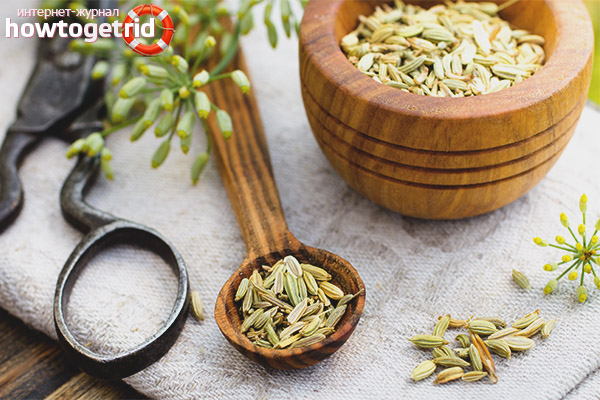
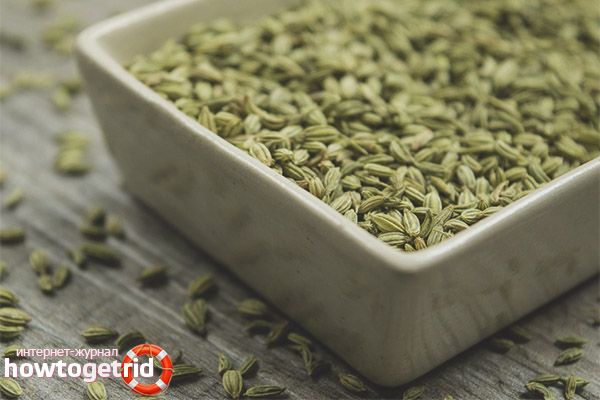
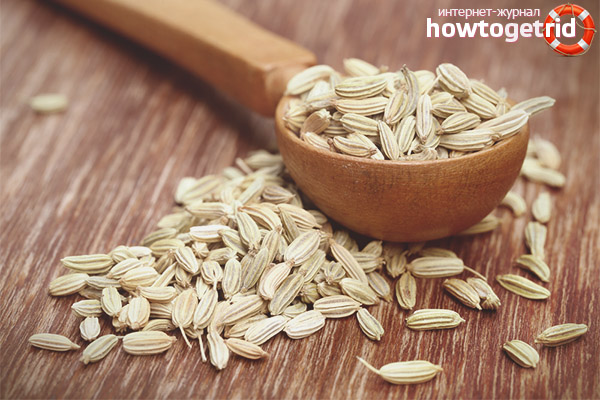
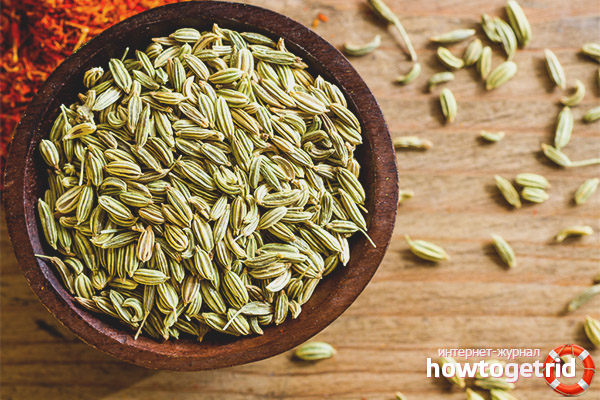
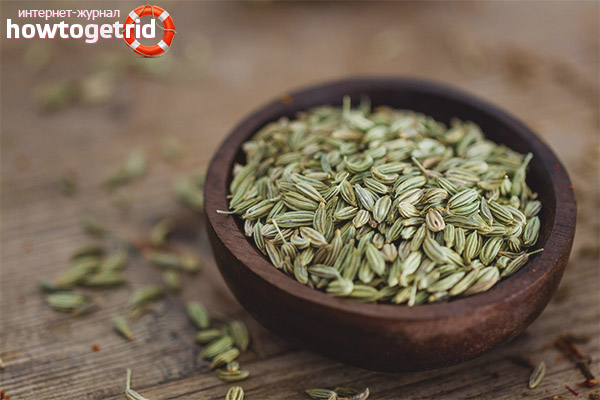
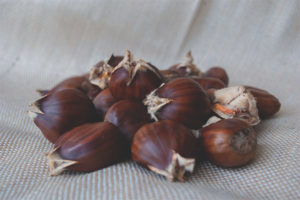
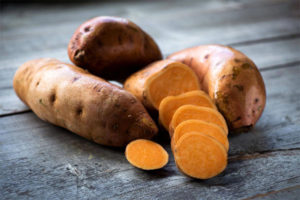
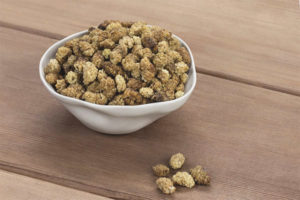
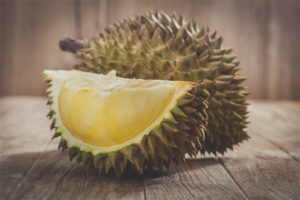
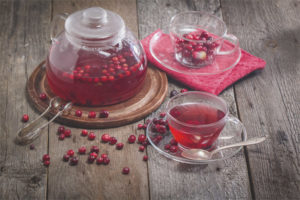
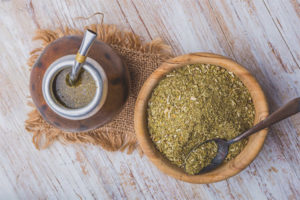
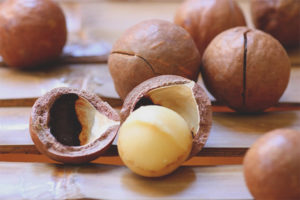
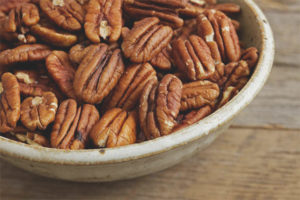
Submit